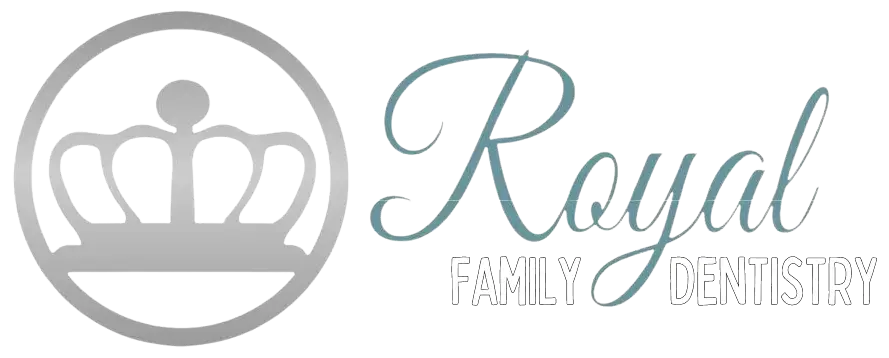
TMJ (temporomandibular joint) treatments encompass a range of approaches to alleviate pain and dysfunction in the jaw joint and surrounding muscles. Common treatments include conservative measures such as lifestyle modifications, jaw exercises, and applying heat or cold packs to reduce inflammation and muscle tension. Dental interventions like bite splints or occlusal adjustments may be recommended by our dentist in Muncie, IN, to correct teeth alignment issues that contribute to TMJ symptoms.
Medications such as muscle relaxants or anti-inflammatories may be prescribed in more severe cases to manage pain and inflammation. For persistent or severe TMJ disorders, interventions like injections or surgical options might be considered to address structural problems within the joint. Treatment plans are typically tailored to each patient's specific symptoms and underlying causes, aiming to restore normal jaw function and alleviate discomfort effectively.

The Symptoms of TMJ Disorders
- Persistent or intermittent pain in the jaw joint area that may worsen with chewing or jaw movement
- Discomfort or tenderness in the face, particularly around the jaw joint, cheeks, temples, or ears
- Difficulty or discomfort when opening or closing the mouth fully, sometimes accompanied by a sensation of the jaw, indicating possible TMJ disc displacement
- Audible clicking, popping, or grating noises when moving the jaw often indicate TMJ disc displacement
- Soreness or sensitivity in the jaw, neck, and shoulder muscles, primarily upon waking or after prolonged use
- Recurrent headaches, including tension or migraines, often radiating from the temples or forehead
- Pain or discomfort in one or both ears, sometimes accompanied by a feeling of fullness or ringing (tinnitus)
- Problems with biting or chewing food due to pain or discomfort in the jaw joint area.
- Swelling around the jaw joint, especially noticeable in the morning or after periods of increased jaw use
- Alterations in how the upper and lower teeth fit together (malocclusion), causing teeth to not meet correctly or feel out of alignment

TMJ Treatments Options
Conservative Treatments
Conservative treatments are often the first line of defense for managing TMJ disorders and include lifestyle modifications, physical therapy, and self-care techniques.
Lifestyle changes such as avoiding hard or chewy foods, practicing stress-reduction techniques to minimize jaw clenching, and maintaining good posture can help alleviate symptoms. Physical therapy may involve jaw exercises and stretches to strengthen muscles, improve jaw mobility, and reduce pain. Heat and cold treatment, such as applying warm compresses or ice packs to the jaw area, can also help relax muscles and reduce inflammation, providing temporary relief from TMJ symptoms.

Dental Treatments
Dental interventions are crucial in managing TMJ disorders by addressing bite alignment issues and reducing teeth grinding or clenching. Bite splints or oral appliances, custom-made by our dentist, are commonly used to reposition the jaw and alleviate pressure on the TMJ. These devices, also known as occlusal splints or night guards, are worn during sleep to prevent teeth grinding and jaw clenching, thereby reducing strain on the jaw joint and muscles.
In some cases, dental adjustments, such as reshaping or replacing dental restorations to improve bite alignment, may be recommended to alleviate TMJ symptoms and prevent further damage. Contact us today to learn more.

Medications
Medications can provide relief from pain, inflammation, and muscle spasms associated with TMJ disorders.
Over-the-counter pain relievers such as ibuprofen or acetaminophen are often used to reduce mild to moderate pain and swelling in the jaw joint. Prescription muscle relaxants may be prescribed to relax tense jaw muscles and reduce jaw clenching or grinding. Nonsteroidal anti-inflammatory drugs (NSAIDs) may also be recommended to alleviate inflammation and discomfort in the TMJ area, particularly during flare-ups of TMJ symptoms.

Advanced Treatments
For persistent or severe TMJ disorders that do not respond to conservative treatments, advanced interventions may be considered to address underlying structural issues or provide long-lasting relief.
Injecting corticosteroids directly into the TMJ can help reduce inflammation and alleviate pain for extended periods. Botulinum toxin (Botox) injections may be used to temporarily paralyze jaw muscles, reducing muscle contractions and alleviating TMJ-related symptoms such as jaw clenching or bruxism. Surgical options, such as arthrocentesis (flushing of the joint), arthroscopy (minimally invasive surgery), or open-joint surgery, may be recommended for cases involving severe joint damage or structural abnormalities affecting TMJ function.

Integrative Approaches
Integrative and complementary treatments can supplement traditional TMJ treatments to enhance overall symptom management and improve jaw function.
Stress management techniques, including biofeedback, meditation, or counseling, can help patients reduce stress levels and minimize behaviors like jaw clenching or teeth grinding that contribute to TMJ symptoms. Alternative therapies such as acupuncture, chiropractic adjustments, or massage therapy may provide additional relief by targeting muscle tension and promoting relaxation in the jaw and surrounding areas.
By seeking timely professional evaluation and treatment, patients can find relief from TMJ symptoms, restore optimal jaw function, and improve their overall oral health and well-being. If you are experiencing TMJ symptoms, visit Royal Family Dentistry at 3610 N Briarwood Ln, Muncie, IN 47304, or call (765) 289-1578 to explore available treatment options and embark on the path to a pain-free jaw and improved quality of life.



